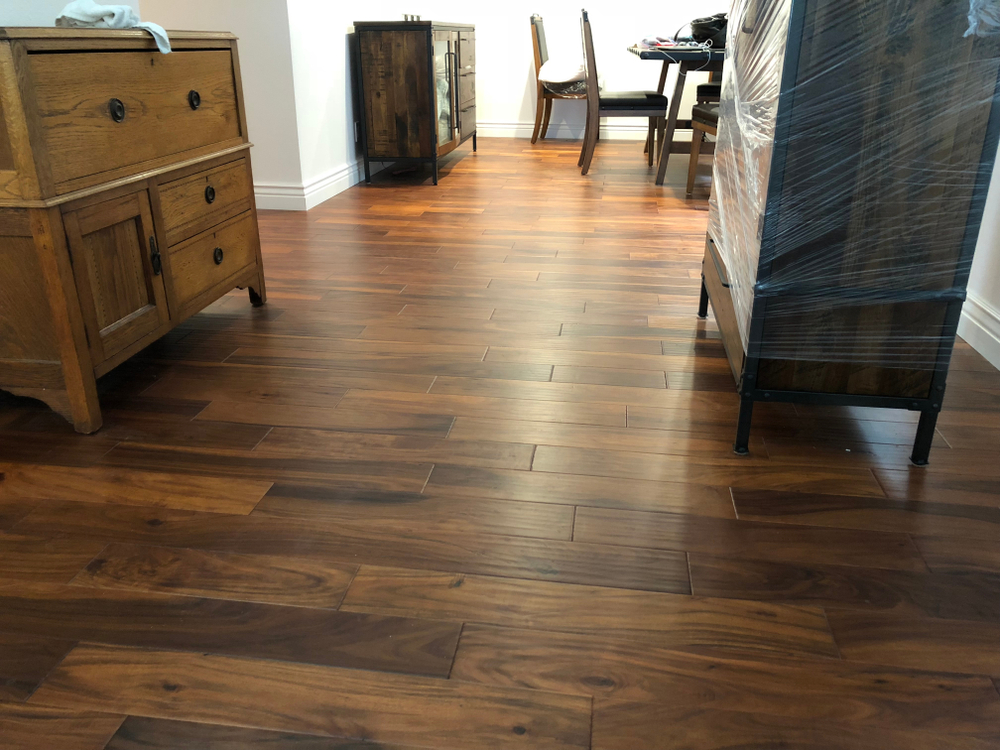Have you been considering renovating your floors to add value and style to your home? Looking for an option that combines timeless style and class with durability? Hardwood floors are a long-standing favourite for those looking to make a statement both while residing in the home, as well as when they plan to sell in the future. As a bold and elegant selection, hardwood flooring serves as a worthwhile investment. If you’ve begun to look into options, but are feeling unsure of what to select, below are a few info points to keep in mind.
Engineered Versus Solid Planks
One of the most common questions our team hears pertains to the difference between engineered and solid (also called traditional) planks. While both may look quite similar to one another, there are important subtleties you’ll want to take into consideration when making your decision.
Solid Hardwood is crafted from a single piece of wood and is almost always thicker than its engineered counterpart. This thickness helps allow for resanding over the years, which helps the planks looking fresh while also eliminating minor wear and tear. Solid hardwood is durable, but is particularly vulnerable to water damage, scratches, and shrinking and expanding due to humidity exposure.
Engineered Hardwood is made of several layers of high-quality plywood that are fused together, then coated with a hardwood veneer. The finished product is slightly thinner than traditional planks, which only allows for planks to be resanded a few times. In contrast to solid planks, however, engineered hardwood is less susceptible to humidity fluctuations and has more flexibility when it comes to where it can be placed in the home, including over concrete or radiant heating.
Which Should I Choose?
The truth is, there’s no single answer that works best for every household. When making your decision, it’s important to factor in the unique needs and aspects of your space, including:
- The purpose of the space
- Environmental challenges
- Exposure to moisture and humidity
- Potential external damaging factors
Another aspect to keep in mind is that, while solid hardwood may be cheaper upfront, the ability to sand multiple times will typically afford you a longer lifespan than engineered hardwood. On the other side of the equation, engineered hardwood gives you more variety in terms of placement. No matter which you choose, proper flooring installation will help guarantee the longevity of your floors, as well as ensure they look their best right from day one.
To learn more about the varieties of hardwood available, contact Ashley Fine Floors today!
